Donation of the company founder: the Robert Bosch Hospital
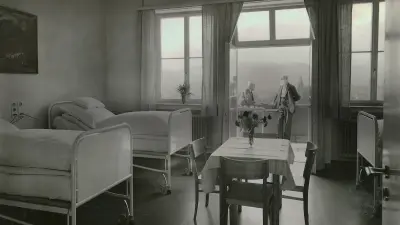
On April 28, 1940, Robert Bosch fulfilled a long-held dream. The grand opening ceremony was held for the homeopathic hospital he had sponsored in Stuttgart.
Robert Bosch had already been introduced to natural remedies and homeopathic treatments by his parents as he was growing up. Meeting the naturopath Professor Jäger at Stuttgart Polytechnic strengthened his belief in natural treatments. In order to further these methods, in 1915 he joined forces with various homeopathic associations to form the “Stuttgarter Homöopathische Krankenhaus GmbH.”
In total, he donated around three million marks for the construction of a homeopathic hospital, although the project was delayed by the First World War.
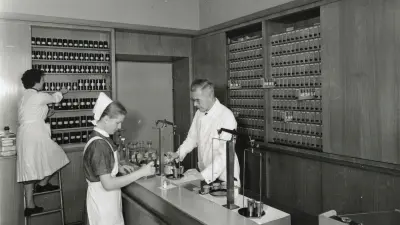
Marking his 75th birthday
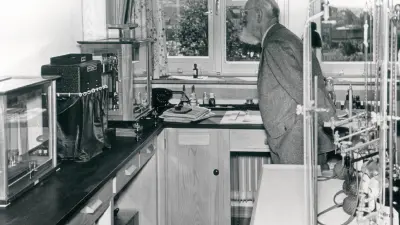
Robert Bosch decided to mark his 75th birthday and the 50th anniversary of the founding of his company in 1936 by sponsoring another homeopathic hospital. That same year, he acquired a suitable plot at Stuttgart’s Pragsattel, and construction work commenced as early as May 1937. In April 1940, it was possible to move the first patients to the Robert Bosch Hospital (RBK) from the provisional hospital in Stuttgart’s Marienstrasse.
At the opening ceremony on April 28, he once again highlighted the objectives and responsibilities of the homeopathic hospital. On the one hand, it was to develop homeopathic healing to the very height of its powers, but, on the other, the doctors in charge also had to keep sight of other promising treatment methods.
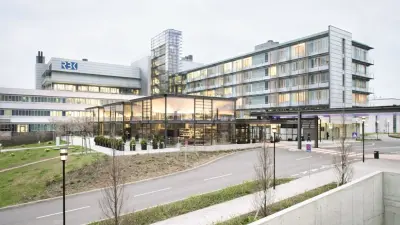
Offering medical services
The hospital had 360 beds divided between two wards devoted to internal medicine, plus one surgical, one gynecological, and one obstetrics ward. On the personal initiative of Robert Bosch, nurses from a religious order in Herrenberg were appointed to care for the patients in the RBK. Over the decades, they shaped the way nursing was done in the RBK, where they were not only responsible for looking after patients, but also for managing the nursing school, taking care of all household matters, including the kitchens, and administrative tasks.
After more than two decades, the lack of space and a desperate need for modernization called for the construction of new premises. In 1965, the Robert Bosch Stiftung, which was by now responsible for the hospital, commissioned the building of a new hospital. After construction work began in 1969, the new Robert Bosch Hospital, situated above the old building, was opened in March 1973.
Opening the new house
In the new hospital, the focus remained on internal medicine. However, there were major changes in other areas. Clinical homeopathy had not achieved the scientifically proven results expected and was now replaced with mainstream medicine. The new RBK quickly went from strength to strength. In 1978, the RBK became a teaching hospital for the University of Tübingen. After the first heart operation at the RBK in 1984, heart surgery was developed into a major specialty of the hospital.
Further milestones in the hospital’s development include the establishment of the clinic for geriatric rehabilitation in 1998, the opening of an emergency center in 2007 and an outpatient operating center in 2008, and the forming of a merger with two other hospitals in 2006.
The Bosch Health Campus was founded in March 2022. It brings together all the institutions and funding activities of the Robert Bosch Stiftung in the field of health.
The hospital today
With around 1.040 beds, RBK is not only one of the biggest hospitals in the region, but also one of the best equipped. Although state-of-the-art technology is indispensable for many successful treatments, the top priority is the patients themselves – just as Robert Bosch would have wanted it. His integrated approach has become an intrinsic part of everyday life at RBK.
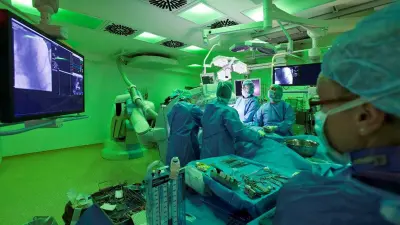
Author: Angelika Merkle
